Description
ABSTRACT
An Overview of Oil, Gas and Solid Minerals Taxation
Olufunlola O. Adediran*
Oil, gas and solid minerals accounts for about 95% of Nigeria’s export earnings. The importance of the industries to Nigeria’s development cannot be overemphasised. The paper explores the origin of the industries in Nigeria and their commercial structure. The paper explains the concept of mineral rights, concessions and licenses in the two industries, the regulatory framework, fiscal incentives and legislations applicable to the two industries. The paper highlights how different sectors of the oil, gas and solid minerals industries are taxed and concludes with a discussion of current issues in the extractive industry including the contentious Petroleum Industry Bill and the Indigenous Oil Companies Bill.
INTRODUCTION
Nigeria as a democratic nation is endowed with abundant human and natural resources most especially petroleum. Petroleum, as a product, is defined as mineral oil (or any related hydrocarbon) or natural gas as it exists in its natural state in strata, and does not include coal or bituminous shale or other stratified deposits from which oil can be extracted by destructive distillation.1
Hydrocarbon accumulations are found in sedimentary rocks, which resulted from rock formation. Sandstones (Shale) are the source rock in which crude oil is formed and accumulated.2 Hydrocarbon can also be found onshore which include underneath land, deserts and swamps below 200 meters depth or offshore which include inland basin, deep and ultra-deep waters above 200 meters and even beyond 1,000 meters of water depth. The earliest petroleum activities were mainly onshore but with advancement in science and technology, exploration and production activities are now mostly carried out offshore.
The Nigerian Minerals and Mining Act defines “minerals” or “mineral resources” as any substance whether in solid, liquid or gaseous form occurring in or on the earth, formed by or subjected to geological processes including occurrences or deposits of rocks, coal, coal bed gases, bituminous shales, tar sands, mineral water, and mineral components in tailing and waste piles, but with the exclusion of crude oil and gas and waters without mineral content.3
* FCA, FCTI. Director, Oil and Gas Department, Federal Inland Revenue Service. The original text of this article was a paper presented at the Pre-Induction Training Programme of The Chartered Institute of Taxation of Nigeria held at The Event Centre, Ikeja, Lagos on 24th November, 2015
- See section 2 of the Petroleum Profit Tax Act, Cap P13 LFN 2004
- Oil and Gas Reservoirs are formed where the following conditions are found:
* Remains of land and sea life in sedimentary basins;
* Heat, pressure or temperature conditions to cause these remains to form petroleum;
* Porous and permeable rock that permits the migration of liquid and gaseous hydrocarbons upward after
formation;
* Impermeable rock strata overlaying the porous rock strata acting as a trap to halt further migration of
hydrocarbons - See Section 164 of the Nigerian Minerals and Mining Act 2007

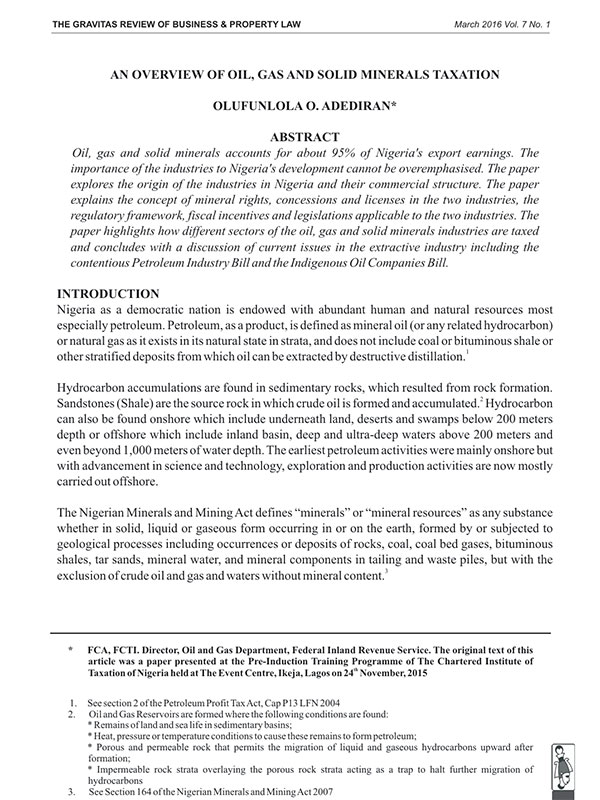
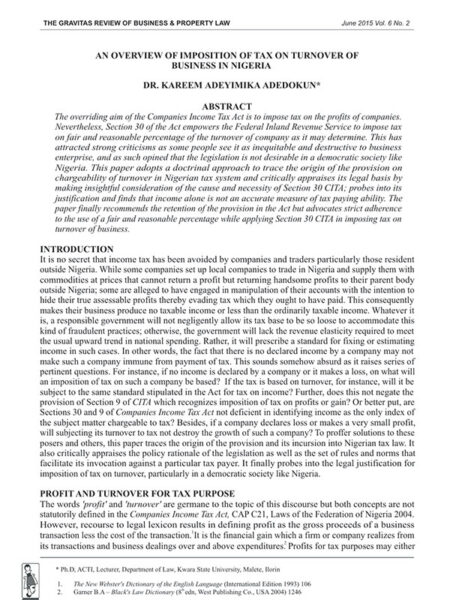
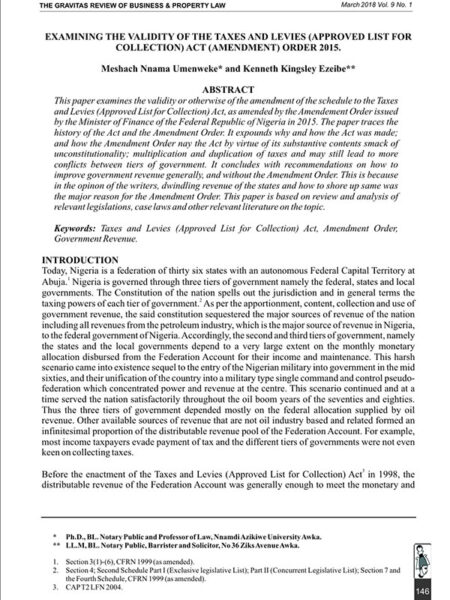
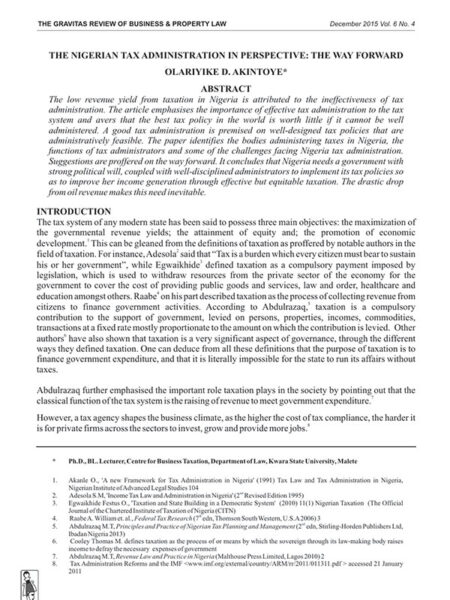
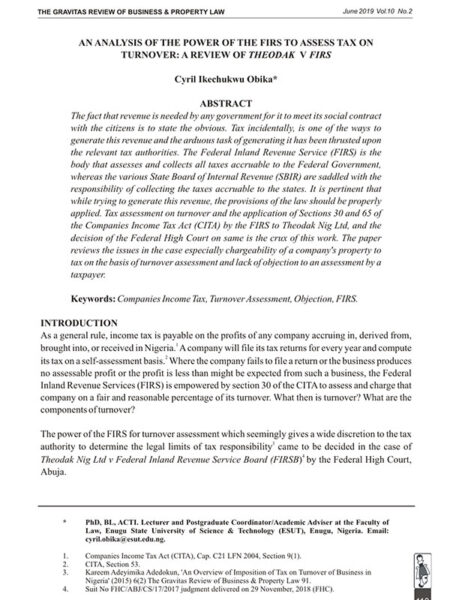


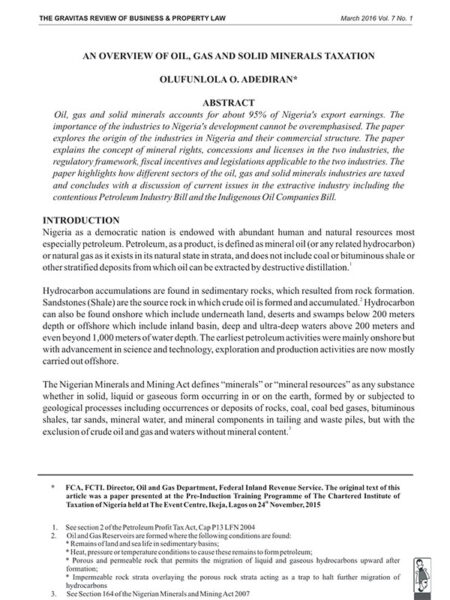
Reviews
There are no reviews yet.